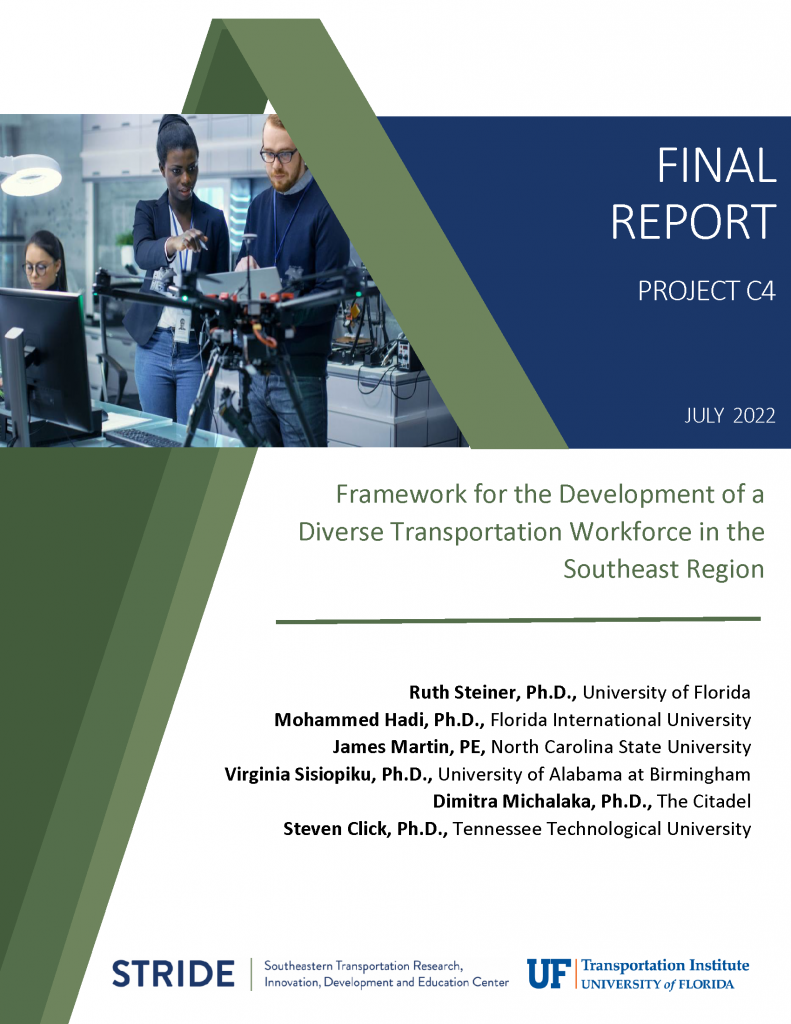A Framework for the Development of a Diverse Transportation Workforce in the Southeast Region
Research Team
Ruth Steiner, Ph.D., University of Florida
Mohammed Hadi, Ph.D., Florida International University
James B. Martin, PE, North Carolina State University/ITRE
Virginia P. Sisiopiku, Ph.D., University of Alabama at Birmingham
Dimitra Michalaka, Ph.D., The Citadel
Steven M. Click, Ph.D., Tennessee Technological University
UTC Project Info
Final Report [view]
Technology Transfer Report
Webinar
What is the current issue? State transportation agencies, including public and private sector employees have repeatedly identified workforce development as a top priority. This is more evident with emerging technologies such as Mobility as a Service, Micro-mobility, electric vehicles, business intelligence, big data, and other such services. Furthermore, there is a need for an increase in the diversity of the workforce – racial and ethnic, gender, second career professionals, veterans and encore careerists and workers with diverse life skills. Another trend is the differences in wage scales between the public and private sector, which affect the retention of qualified staff at the public agencies. The establishment and maintenance of a workforce with the required knowledge, skills, and abilities require education, training, recruitment, and retention activities that are currently lacking. The Unites State Department of Transportation (USDOT), university transportation centers (UTCs), and academic institutions, including universities and community colleges can play an important role in the success of these activities.
What will this research produce? This project developed a framework for training and education to support the diverse workforce development needs of the transportation sector in the Southeast region with an emphasis on the role of secondary academic institutions. The project identified current and future needs and defined the roles of the UTCs, universities, and community colleges in the region in training and education activities. The effort documented in this report builds on the national and the Southeast region efforts that have already been done in this regard.
